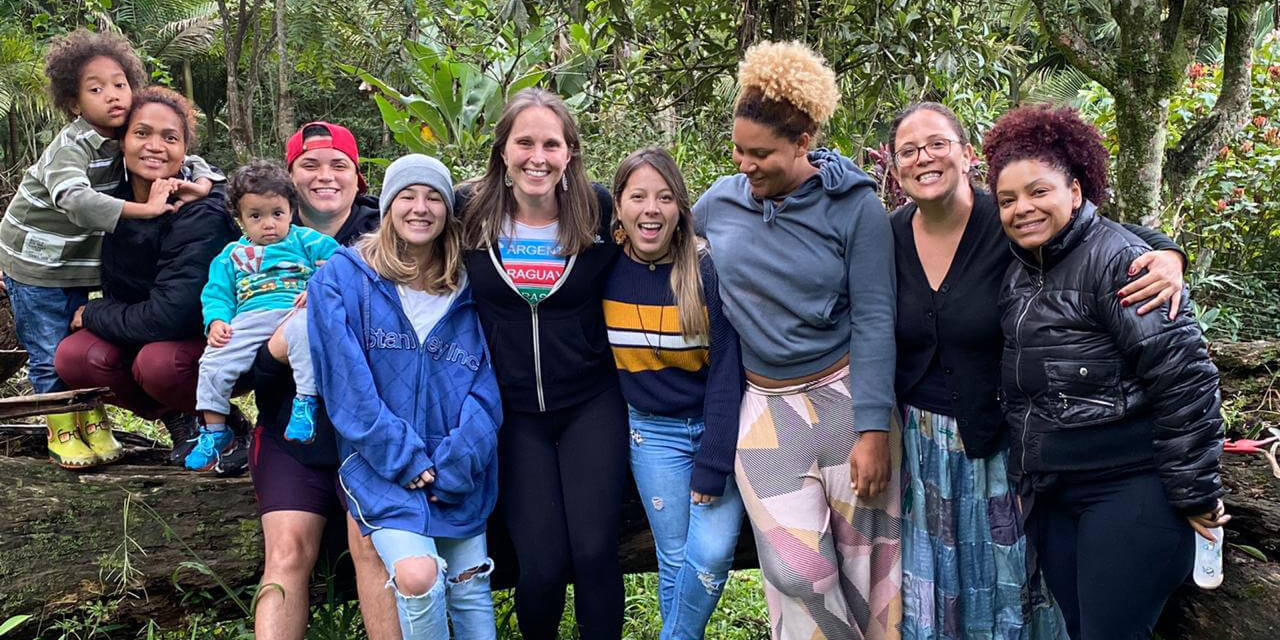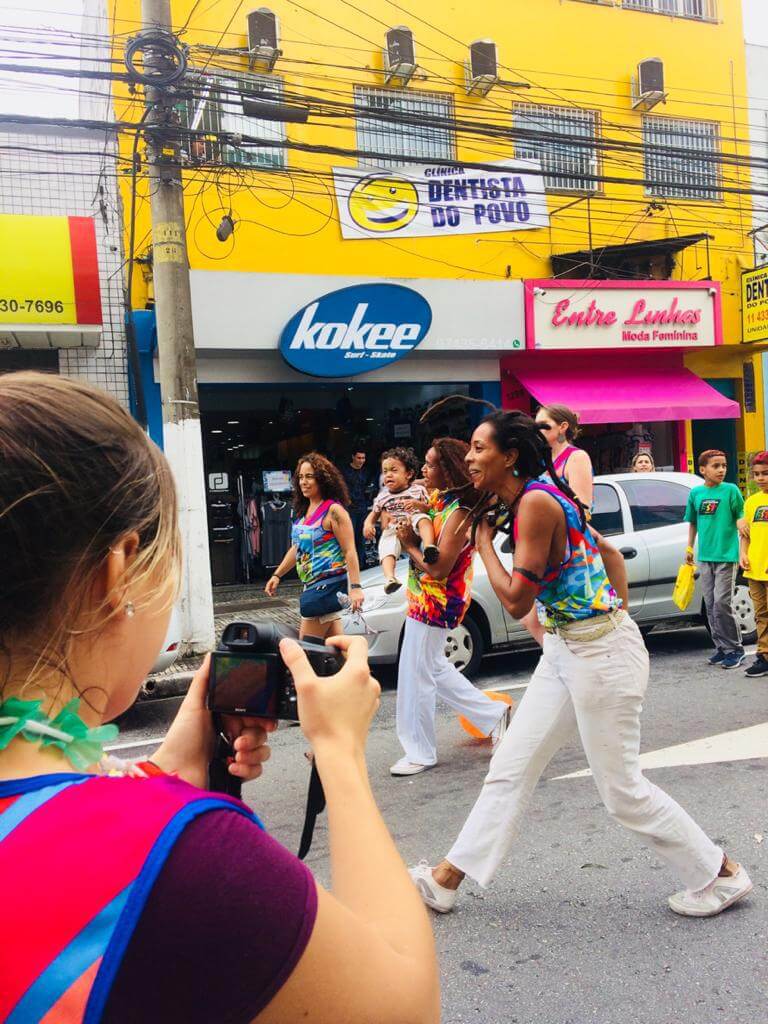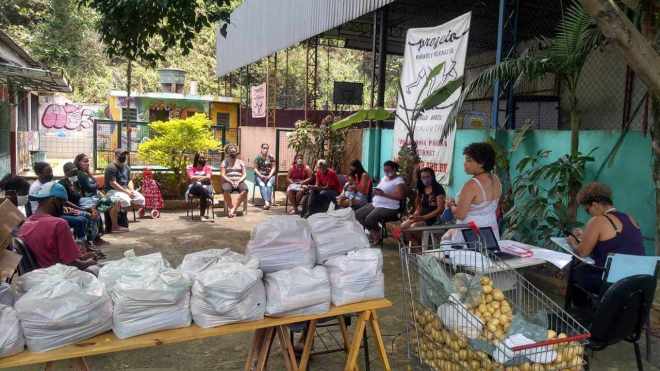Young adult harnesses power of story-telling for justice

Global Mission Fellow Mónica Arango, fourth from right, not only serves her community, but is supported by her community. PHOTO: COURTESY OF MÓNICA ARANGO
By Sara Logeman
January 28, 2021 | ATLANTA
Her call to mission came when she began to study journalism.
Through writing, photography and a growing awareness of injustice in the world, Mónica Arango realized that her passion for story-telling wasn’t just a career path. It was a vocation. A way to make a tangible difference in the lives of others.
“As a journalist, I saw an opportunity to share with people, telling their stories and being a tool for positive change,” says Arango. “You don’t have to become clergy to help; you just need to be aware of what is happening in your community, your neighborhood or your family.”

PHOTO: COURTESY OF MÓNICA ARANGO
Now as a part of the 2019-2021 cohort of Global Mission Fellows, a program of The United Methodist Church that places young adults in service opportunities centered on justice and advocacy, Arango, a native of Colombia, serves as a communications assistant for Projeto Meninos e Meninas de Rua (Street Boys and Girls Project or PMMR) in neighboring Brazil.
PMMR, based in São Bernardo do Campo, has been defending the rights of children and adolescents for more than 35 years. The organization was formed as a response to the murder of six teenagers on September 3, 1983, who were living on the street and simply seeking shelter.
In Arango’s words, the goal of the organization is two-fold: “the defense of the human rights of children and adolescents, articulating and promoting influence in the government and society, and the direct care for street boys and girls, their families and the community in which they live.” Through advocacy and accompaniment, PMMR is a place for young people on the margins to be safe and seen, to grow and learn and, most importantly, to become agents of their own story. The organization offers cultural and artistic activities, like dance, music and poetry classes, as a way for young people to expand their vision of the world and the possibilities it holds for them.
Of Brazil’s 211 million people, more than a quarter of the population live in poverty. Close to half of those that are impoverished are children and adolescents. Arango is acutely aware of the data, and sees these numbers embodied in the young people PMMR serves. Poverty breeds inequality, and issues like homelessness and limited access to resources become a generational cycle that is hard to break. “Working and fighting for their rights becomes imperative,” she notes.
This imperative has only become more critical in the time of COVID-19. Brazil quickly became and remains a country with one of the highest rates of COVID-19 infection and death in the world.
PMMR responded to the pandemic quickly by sharing information on how to protect against the spread of the coronavirus, as well as calling for donations of masks, hygiene items and food to distribute to families in need. In her role as communications assistant, Arango harnessed the power of communications to maintain connections to the larger community…even from afar. She briefly returned to Colombia and worked from home when the crisis in Brazil worsened. “Virtual tools became crucial,” she remembers.
Arango got creative in finding ways to amplify and advance the work of PMMR. She took to social media to ask for donations. She crafted graphics and newsletters to share with friends, family and donors. She shared regular updates on the Friday morning drop offs across the city, welcome weekly sights of the donated goods making their way to thankful recipients.

PHOTO: MÓNICA ARANGO
In April 2020, when the number of infections and deaths began to rapidly increase in Brazil, PMMR’s donations benefitted 207 families across 32 communities. That is close to 900 people in total, with half being children and adolescents. “In these times of worsening poverty, injustice, inequality and needs, we prove that the population in social vulnerability and homelessness is not alone,” Arango noted in a recent newsletter.
In the months that followed, PMMR continued to respond. In spite of lockdowns and social isolation, Arango’s work as a communicator continued to support and fuel the effort. PMMR’s reach grew, supporting 300-350 families each month. By simply being aware of the needs within her community, and by making others aware of the needs though the power of story, Arango has become “a tool for positive change,” to borrow her own phase. Through her compelling words, moving photographs and intentional relationships with the most vulnerable, Arango serves as a conduit for the compassion and justice of God.
Hear directly from Arango on her role with PMMR, including an impactful experience that reminded her of the importance of the work:
Sara Logeman is the content strategist for Global Ministries. Jennifer Silver, content producer, contributed the video interview.
If you are interested in learning more about the Global Mission Fellows program, applying to become a Global Mission Fellow or supporting a Fellow in their work, learn more here.

